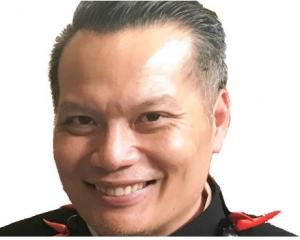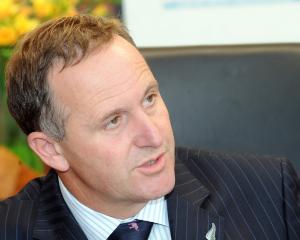Some party members also say it confirms the co-leaders orchestrated the Te Ururoa Flavell-authored complaint.
The process has been shambolic. One hui was cancelled, Mr Flavell and Mr Harawira were asked to leave a (Maori Party) national council meeting rather than discuss the issue, party officials said they were not invited to a meeting on a northern marae although marae tikanga is not conditional on receiving one, and Mr Flavell refused to attend a second northern meeting.
To his credit, Mr Harawira fronted up at a meeting on Taheke marae in Mr Flavell's tribal area, good will undone by his "dickheads" comment on Facebook.
Dr Sharples accused Mr Harawira of undermining him by speaking first on Waitangi Day, although Mr Harawira appears not to have had forewarning of Mr Sharples' speech because, unlike others including myself, he did not receive an advance copy.
Mr Harawira has made an annual speech every year at Waitangi for three decades, people expect him to speak, it is his turangawaewae (standing place) and papakainga (home ground).
A fair hearing is unlikely, an internet search quickly raising questions about the committee's neutrality. Announced as broadly representative of iwi and a range of expertise, the five members are actually drawn from a narrow central North Island cohort centred on the three parliamentary leaders.
In fact, five of six key players share tribal links with Waiariki and share backgrounds in education with Mr Flavell and Dr Sharples.
Party president Pem Bird, the overall architect, is also from Mr Flavell's Waiariki electorate where he was formerly chairman.
Donna Gardiner is a co-chairwoman of Dr Sharples' Tamakimakaurau electorate and tribally from Waiariki. Te Orohi Paul was Mr Flavell's electorate secretary and also from there. Matiu Dickson, who lives in Tainui, is another from Waiariki and reportedly very close to Mr Flavell. Ken Mair, who has worked closely with Tariana Turia on the Whanganui River settlement, also has tribal links to Waiariki.
Gordon Paku is from the southern Ikaroa-Rawhiti area of Ngati Kahungunu, the same tribe as Dr Sharples and received a QSM in 2009 - one hopes not via a process that included consultation with the Minister of Maori Affairs.
Relationships in small parties are always close.
However, the absence of Te Tai Tokerau, Te Tai Tonga, northern Ikaroa-Rawhiti or a non-Waiariki person from Tainui suggests nepotism.
The northern electorate also appears to have been left out of the meeting that appointed the committee, which probably contravenes the constitution.
The party has appointed Ngapuhi elder Patu Hohepa to facilitate; however, he has no vote - a cultural stratagem Maori will recognise from Pakeha institutions.
The full complaint alleges Mr Harawira acts unethically and without integrity and is dishonest in a way that undermines Mr Flavell, the leadership and the party.
Examples given in support are questionable. One, that Mr Harawira suggested the party explore a relationship with Labour and the Greens, seems quite normal under MMP.
Others include Mr Harawira suggesting to do more tours to reconnect with flaxroot Maori who say the party is going off the rails. The latest Te Karere Digipoll showed 45% of Maori Party supporters do not support the arrangement with National and 50% of all Maori voters think the Government, and therefore the partnership, is heading in the wrong direction.
A third, Mr Harawira saying the party has changed its views a lot since it was in opposition, is also true.
Before 2009, the party voted with National 30% of the time. Post-2009, this has increased to 60%.
Mr Harawira's opposition to the foreshore and seabed repeal is centerpiece to the complaint. However, only 23.6% of Maori support the current draft. Maori were heartened this week to hear Tuku Morgan speak of possible concessions from Government. If changes make it less discriminatory then much of the credit should go to the MP who questioned it most, Mr Harawira.
Mr Harawira sometimes lacks judgement. The partnership with National has been the right thing to do. The expletives and derogatory references have to go. However, he is not dishonest; he does speak before he thinks which gives him a raw honesty many like.
The party leadership has spoken at length about caucus discipline. The kind it advocates has undermined generations of Maori Mps. Ms Turia's experience under Helen Clark testifies to that.
Mr Harawira is not disloyal. The Maori Party has voted on 500 Bills since 2005; Mr Harawira has voted against it only three times.
The history of small coalition parties is one of being subsumed by majority partners, loss of uniqueness and implosion. The Maori Party needs Mr Harawira's forthrightness to keep fresh the principles upon which it was founded; and he needs it.
Dr Sharples is right: the future of an independent Maori Party is at stake. Neither side has shown a genuine willingness to compromise. Both will lose in a parting of ways.
Maori voters, after generations of waiting for a voice, will lose the most.
• Dr Rawiri Taonui is a Maori political commentator and academic.








